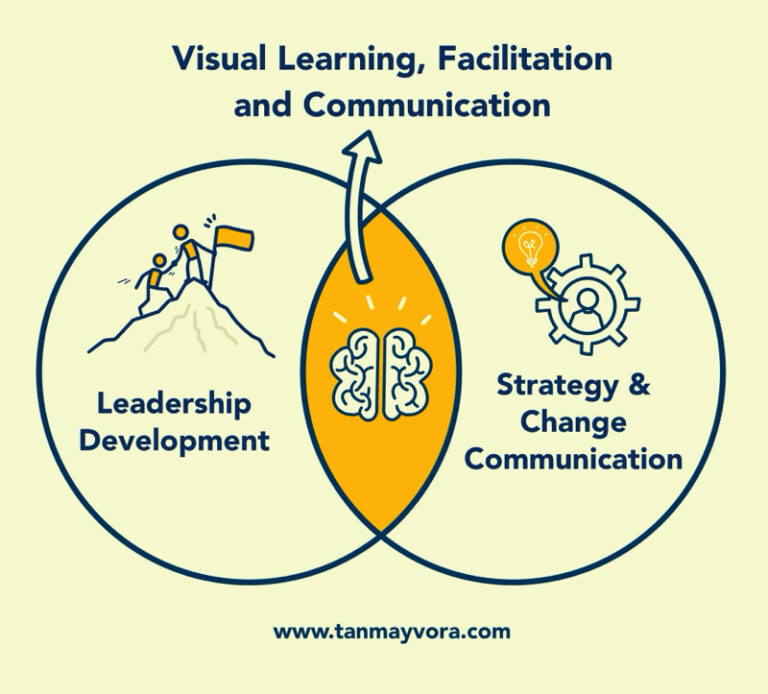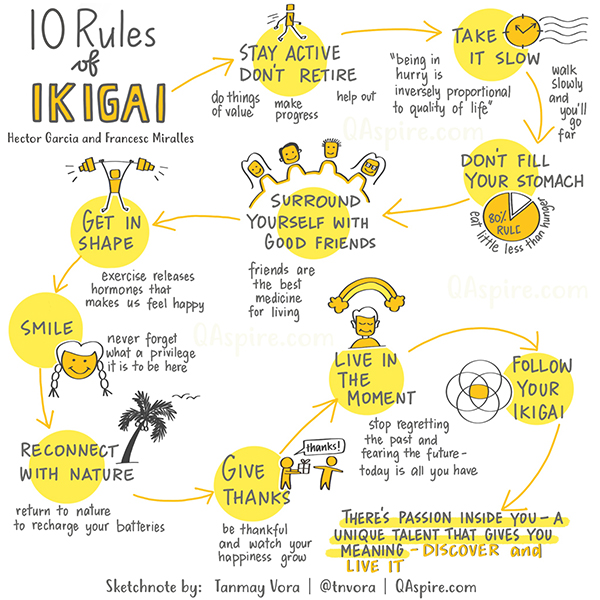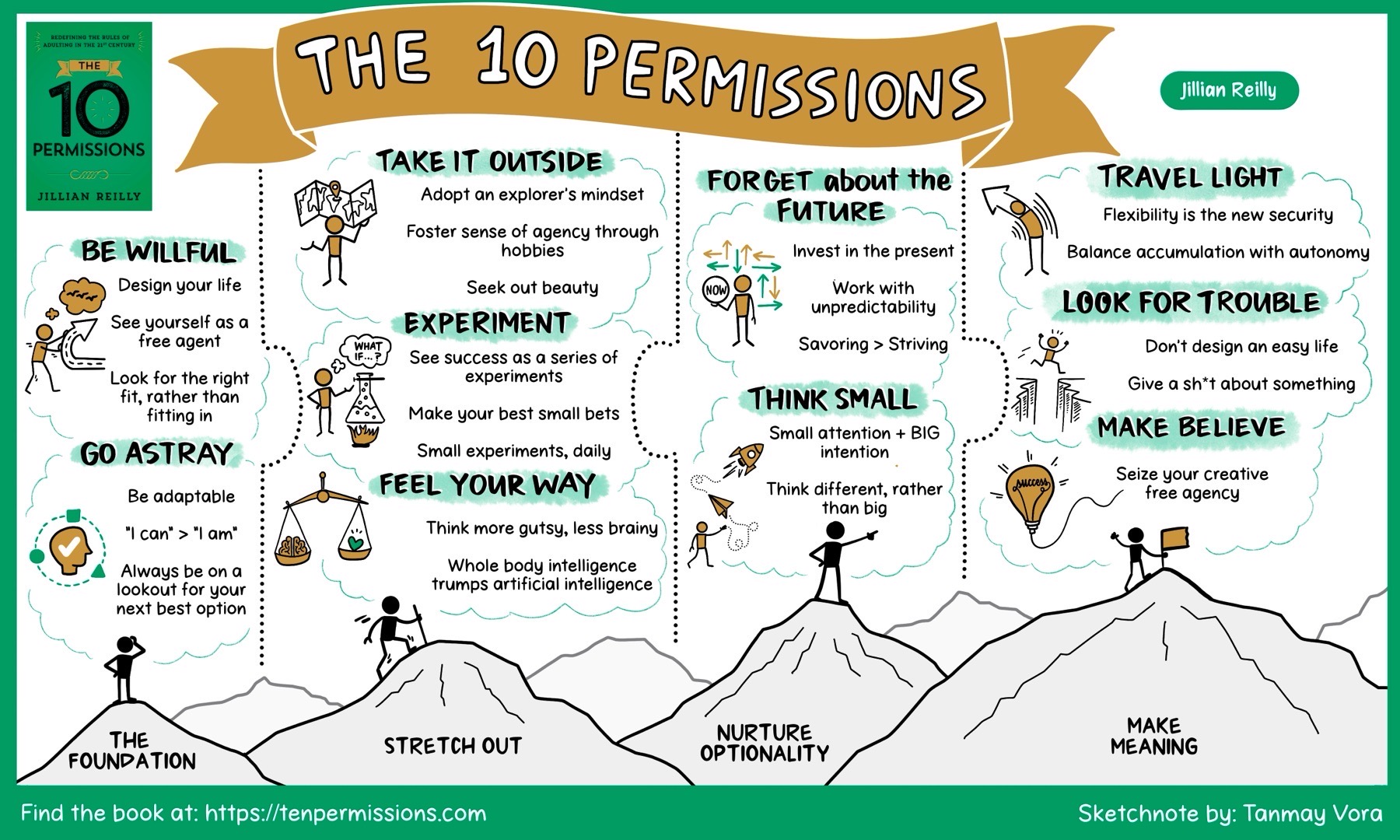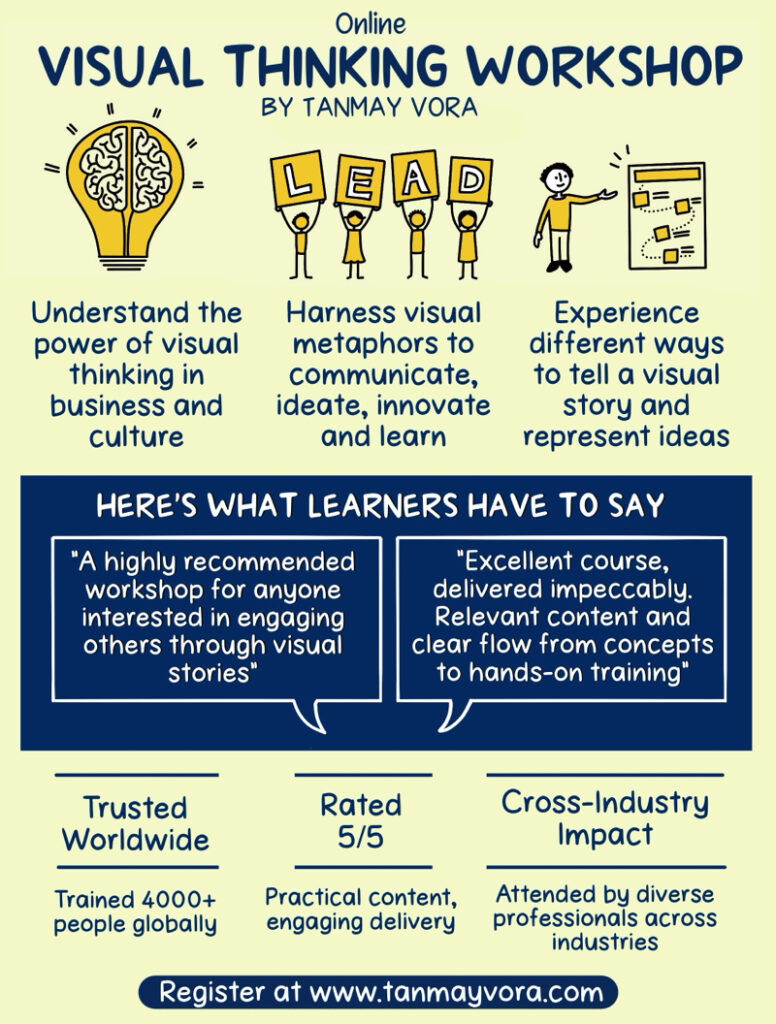Services
Visual Storytelling and Communication
Leadership Coaching and Training
Strategy and Change Facilitation
Complexity is the enemy of execution.
I distill your most complex ideas and strategies into “brain-friendly” visual stories that resonate, stick, and drive collective action.
High-performance cultures are built on clear communication and trust.
My workshops blend lived executive experience with visual thinking to develop leaders who can execute faster and inspire teams.
Transform complex organizational change into a clear, shared journey.
From strategy development to cultural alignment, I provide the visual roadmap your team needs to move forward with confidence.
Featured
The Art of Sketchnoting
In a conversation with Deepak Jayaraman, Tanmay unpacks the idea of skillstacking – the art of strategically combining our skills to shape the playground we operate in. He specifically discusses about how sketchnoting adds to his flywheel in terms of how he adds value in his work in leadership facilitation, change consulting, and visual storytelling.
Creating REACH for Your Ideas
Becky Robinson talks to Tanmay Vora on his journey of building online audience for his work/ideas through four commitments of Value, Consistency, Generosity and Longevity and shares strategies.
Listen to the Episode Here
Visual Nudges: Hand-Drawn Mental Models for Life and Work
In a noisy world, we don’t need more information. We need better anchors to think.
Visual Nudges is a collection of bite-sized and minimal visual ideas created for quick grasp, easy recall and instant resonance.
I have curated and hand-drawn high-impact Visual Nudges that will gently do what they are intended to do – nudge you to think, reflect, and act.
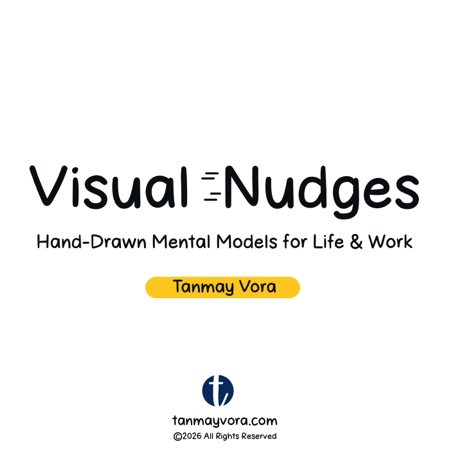
Since 2006, I’ve been distilling insights on quality, leadership, organizational development, learning, and large-scale change. Explore hundreds of sketchnotes that turn complex ideas into visual wisdom, alongside book reviews, author interviews, concise 100-word reflections, and curated round-ups – all designed to spark clarity and action.
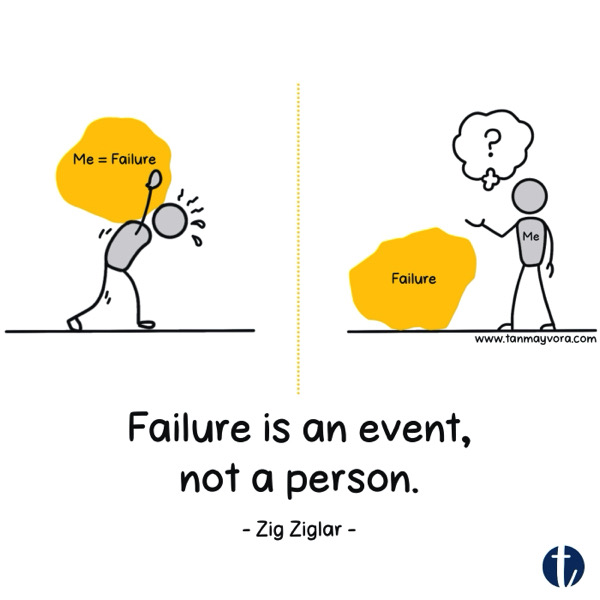
Visual Nudge: The Path to Productive Failure (And Why Identity is the Obstacle)
We are so conditioned to “not fail” that every failure feels like a weight you carry. The reality is: failure is a lesson you learn, so that you can act more intelligently in your next move. I have learned this the hard way. Early in my career, I viewed setbacks at work as personal verdicts. […]
Tanmay Vora

Visual Nudge: The Power of Discipline – How Tiny Efforts Create Massive Results
Some conversations leave a lasting impact on you. During one of many such conversations with Rajesh Setty, he shared this quote from Jim Rohn, “For every disciplined effort, there is multiple reward.” – Jim Rohn I am not sure I understood it completely then, because life sometimes delivers an insight before you can experience it. […]
Tanmay Vora

Visual Nudge: When in Doom, Be Curious – The Mindset Shift We Need Now
Change and disruption can unnerve us. Last year, I was facilitating a leadership workshop when a participant shared a concern that stayed with me. He expressed,”With all the uncertainty around – AI disruption, climate change, geopolitical upheavals – it sometimes feels like the world is falling apart. What’s the point of trying to lead amidst […]
Tanmay Vora
Newsletter
We value your attention and share curated insights that pack maximum value in crisp newsletter editions.
We also take your privacy very seriously. We do not sell or share your personal information with any third parties.
Visual Tools for Leaders, Learners, and Change-Makers

A toolkit with collection of 90+ powerful and actionable insights in form of hand-drawn sketchnotes (in high-resolution). These visual insights are packed with wisdom to help you raise the bar of leadership for yourself, your teams and your organization. Ideal for senior business leaders, L&D professionals, coaches, facilitators, consultants, trainers and aspiring leaders.

A Visual Provocation to Fuel Your Journey of Lifelong Learning: This book of 30+ hand-drawn sketchnotes (in high-resolution) on Learning explores various aspects of being a lifelong learner from mindset to strategies. Ideal for entry level professionals, lifelong learners, senior business leaders, L&D professionals, coaches, facilitators, consultants, trainers and aspiring leaders.
Visual Thinking & Sketchnote Workshop
This virtual, immersive workshop is designed to bring the benefits of visual thinking in how you communicate, learn and solve problems individually as well as collectively.
This hands-on workshop will give you and your team, confidence to use minimal lines, simple drawings and engaging metaphors to express ideas, models, concepts and emotions. The workshop is for everyone who deals with complex ideas that need to be shared with others.
We have conducted this institutional workshop and provided coaching at world-class organizations like Philips Design Center, Oldendorff, Citi and institutions like SHRM India, IIT Gandhinagar and NASSCOM.
Our open workshops have been attended by more than 3000 participants so far from companies like NHS England, Page Industries Ltd. , JP Morgan, AXA US, Tata Elixsi, Cisco Systems, Tata Projects, Citi, TCS, SAP SE, Blue Cross Blue Shield, TechMahindra (and more) from 17 different countries so far.
